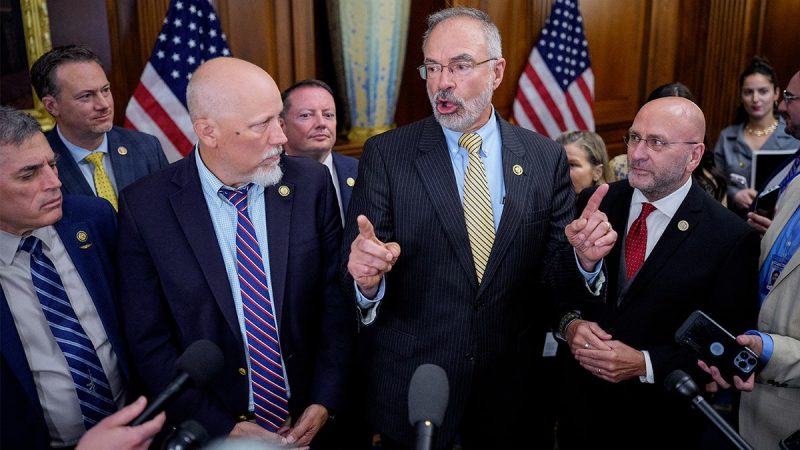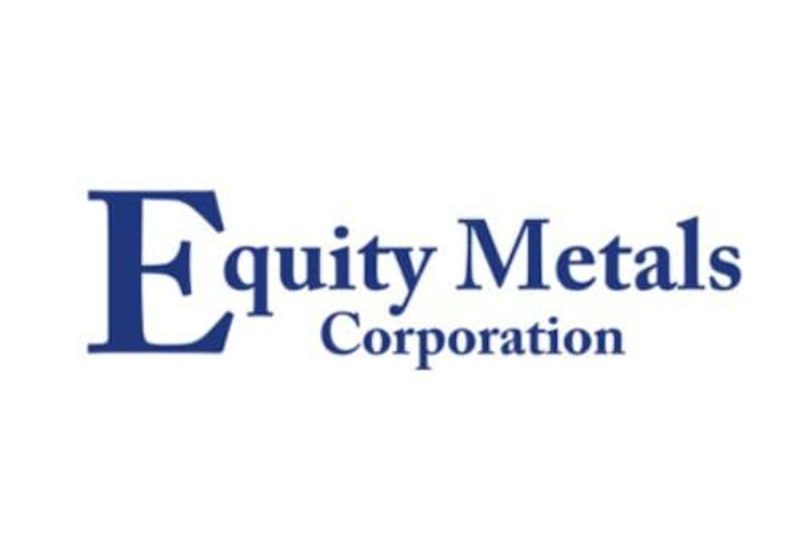
Members of the conservative House Freedom Caucus are warning they have serious issues with the Senate’s version of President Donald Trump’s ‘big, beautiful bill’ as it’s currently written.
The group of GOP rebels argued in a public statement on Sunday that the Senate bill adds $1.3 trillion to the federal deficit, whereas the House-passed bill would increase the federal deficit by $72 billion.
‘Even without interest costs, it is $651 billion over our agreed budget framework,’ the statement read.
The Senate is currently working through the bill and is expected to finish sometime later Monday or even on Tuesday.
The Senate bill would add an extra $1 trillion to raise the debt limit, compared to the House version and permanently extend certain corporate tax cuts in President Donald Trump’s 2017 Tax Cuts and Jobs Act (TCJA) that the House only extended temporarily.
It also includes several specific new additions aimed at easing Senate Republicans’ own concerns with the bill, including a $25 billion rural hospital fund to offset issues with Medicaid cuts, and a tax break for whalers that appears aimed at Sen. Lisa Murkowski, R-Alaska.
The Senate is operating under a mechanism called ‘current policy baseline,’ which would effectively zero-out the cost of extending TCJA tax cuts by calculating them as the de facto operational policy rather than calculating the cost as if they were not in place.
Absent congressional action, TCJA tax cuts expire at the end of 2025.
Conservatives in the House have warned they have serious issues with the bill, however.
Reps. Ralph Norman, R-Texas, and Eric Burlison, R-Mo., both House Freedom Caucus members, said the bill could face steep odds — even fail — in the lower chamber if changes were not made.
Both said it could fail in a House-wide procedural vote before lawmakers could even contend with the measure itself. A rule vote is traditionally taken to allow for debate on legislation before lawmakers weigh in on it.
‘If it gets through [the House Rules Committee], I don’t think it survives on the floor in the current form it’s in. You know, we told the senators that,’ Norman told Fox News Digital. ‘They knew this all along.’
Norman said Speaker Mike Johnson, R-La., had done a ‘good job,’ but added of the Senate, ‘They’ve got fighters… but we’ve just got to have certain things that comply with our House version.’
The legislation could still change before it gets to the House, however, as the Senate works through a parade of amendments from both Democrats and Republicans.
Burlison said it could depend on the fate of an amendment by Sen. Rick Scott, R-Fla., which would significantly hike the Medicaid financial burden for states that expanded their Medicaid population under the Affordable Care Act (ACA).
The change, if passed, would roll back the current 90% rate that the government pays for the Medicaid expansion population through the federal medical assistance percentage (FMAP) back down to the non-expansion rate, which hovers as low as 50%.
Scott’s proposal could add hundreds of billions in savings to the plan, in addition to the nearly $1 trillion the Senate plan already saves in Medicaid spending.
‘I don’t see how what the Senate is doing will pass the House if [Rick Scott’s amendment] does not pass at the minimum. It’s probably going to take more spending reductions than that, but that would get the majority of us there,’ Burlison told Fox News Digital, without commenting on House GOP leaders.
He predicted the bill could be ‘killed’ in the House-wide rule vote otherwise.
Indeed, several House Freedom Caucus members have taken to X to publicly urge Senate Republicans to approve Scott’s amendment.
‘All Republican Senators should vote YES on Senator Rick Scott’s very reasonable ‘elimination of theft from Medicaid’ FMAP amendment,’ Rep. Clay Higgins, R-La., posted.
Fox News Digital reached out to Speaker Mike Johnson’s office for comment on House Freedom Caucus members’ comments.
Notably, key provisions originally in the House bill were stripped out of the legislation for not being ‘Byrd-compliant.’
The ‘Byrd Bath’ is a process during the budget reconciliation process in which the Senate parliamentarian, a non-partisan, unelected official tasked with advising on Senate policy, combs through the bill for whether it adheres to the strict budgetary guidelines of the reconciliation process.
Republicans are using the budget reconciliation process to advance Trump’s agenda on taxes, the border, energy, defense, and the debt limit via one massive piece of legislation.
Budget reconciliation allows Republicans to bypass any Democratic opposition to pass their bill by lowering the Senate’s threshold for passage from 60 votes to 51.
They’re aiming to have a bill on Trump’s desk by the Fourth of July.
A GOP aide told Fox News Digital, ‘The Senate version contains more in Byrd-compliant savings than the House, and correctly scores extending current tax policy as revenue-neutral — and assumes the kind of growth that was also massively underestimated last time around.’
The aide noted that the White House Council of Economic Advisers said the bill will generate $4.1 trillion in economic growth thanks to tax permanence, which is more than the House version.
Senate Republicans argue the bill would lead to $1.6 trillion in spending cuts over 10 years — above the House Freedom Caucus’ demanded $1.5 trillion threshold.
This post appeared first on FOX NEWS
























